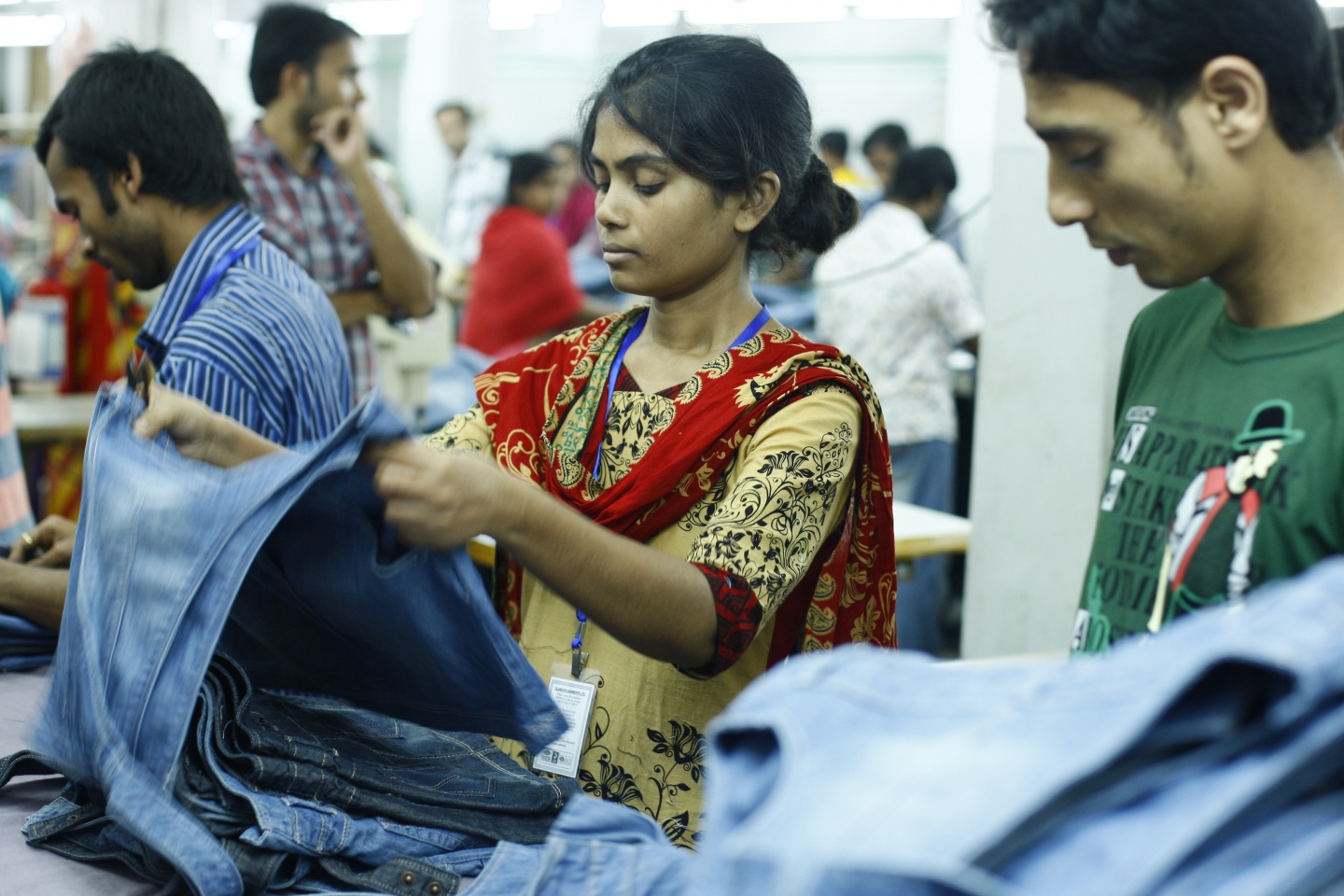2 February, 2017The latest crackdown on Bangladesh’s garment workers for demanding relief from poverty wages and hazardous working conditions must call into question the country’s continuing eligibility for trade preferences under the EU’s GSP regime, write Valter Sanches IndustriALL General Secretary, Philip Jennings UNI Global Union General Secretary and Sharan Burrow, General Secretary of the International Trade Union Confederation.
Nearly four years ago, in April 2013, the world watched in horror as the Rana Plaza building collapsed, killing more than 1,100 garment workers and injuring many more.
This tragedy should have been a turning point for the garment industry in Bangladesh, but the government has done disturbingly little to guarantee respect for the rule of law, including national labour law and international labour standards.
The ready-made garment industry accounts for more than 80% of Bangladesh’s exports. The minimum wage of US$67 per month has not been increased since 2013 and wages in the garment industry are among the lowest in the world. Meanwhile, the cost of housing, basic commodities and medical care is spiralling.
Now Bangladesh has taken an alarming step backwards. When workers went on strike for higher wages in December, at least eleven union leaders and workers’ rights advocates were detained under the Special Powers Act 1974, a wartime emergency law which authorises detention without charge for up to six months.
Employers responded to the strike by closing 59 factories and filing charges against hundreds of workers. As many as 1,500 workers were dismissed, and many of them have been blacklisted from getting other jobs in the industry.
Speaking in Davos in January, Prime Minister Sheikh Hasina sought to assure the world that Bangladesh is “highly committed to ensuring compliance with regard to the ready-made garment industry”.
Meanwhile, her government and the country’s powerful garment factory owners are using the wage strike as a pretext to crack down even further on the labour movement.
It is still extremely difficult for workers to exercise their fundamental labour rights in Bangladesh. For many garment workers, it is near impossible to organise and form unions without retaliation. The Registrar of Trade Unions arbitrarily rejects registration applications from the most active and independent trade union federations and a severe climate of anti-union violence prevails, coupled with near total impunity for the perpetrators.
The Sustainability Compact, agreed between Bangladesh and the EU to improve labour rights in the garment industry, is essentially dead. It is clear that the government has no intention to comply with its terms and is in breach of the labour conditionality of the EU GSP ‘Everything but Arms’ scheme.
But despite Bangladesh’s obvious failure to comply with its international obligations, the European Commission is not taking sufficient action to hold the government to account. It will take more than dialogue.
The EU must immediately launch an investigation under the GSP. Only the potential loss of market access will demonstrate to the government of Bangladesh that Europe is serious about workers’ rights.
Garment workers in Bangladesh have the unequivocal right to organise. Until the government stops suppressing trade unions and can guarantee a climate in which workers are free to join unions and demand better wages and working conditions, it should not benefit from special trade privileges reserved for those countries that properly respect fundamental labour rights.
